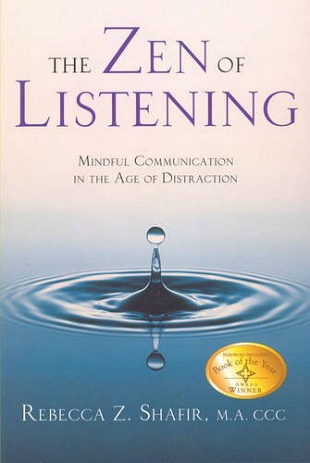"Listening is the first step in making people feel valued," writes Rebecca Shafir, a certified speech/language pathologist and chief of speech pathology at the Lahey Clinic in Massachusetts. She is a 20-year student of transcendental meditation and Zen studies and has a black belt in martial arts. She notes that Ernest Hemingway had a way of listening with such intensity that the person doing the speaking felt supremely complimented.
Shafir believes that this skill is "the nation's greatest communication weakness." To listen closely one has to cut through all the external distractions of noise pollution, cell phones, beepers, and much more. There is also the problem of internal noise that involves critical judgments, self-conscious comments, and old tapes. Or as the author puts it: "One of the main reasons we listen poorly is because our internal noise levels are so turbulent and obtrusive that they mark most of what others are saying. Only bits and pieces of their message survive the barrage of our mental interference."
Shafir is convinced that meditation is "the best way to open the mind and clean house of the noise and the barriers that sabotage our capacity to listen." Throughout this helpful and down-to-earth manual, she presents exercises to encourage deep listening and to overcome some of the barriers to attentiveness. In the true spirit of Zen, Shafir suggests we set aside the ego and its relentless need for center stage in favor of opening our hearts and minds to others.
